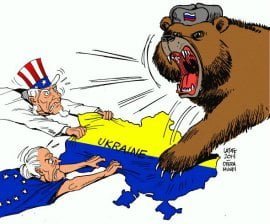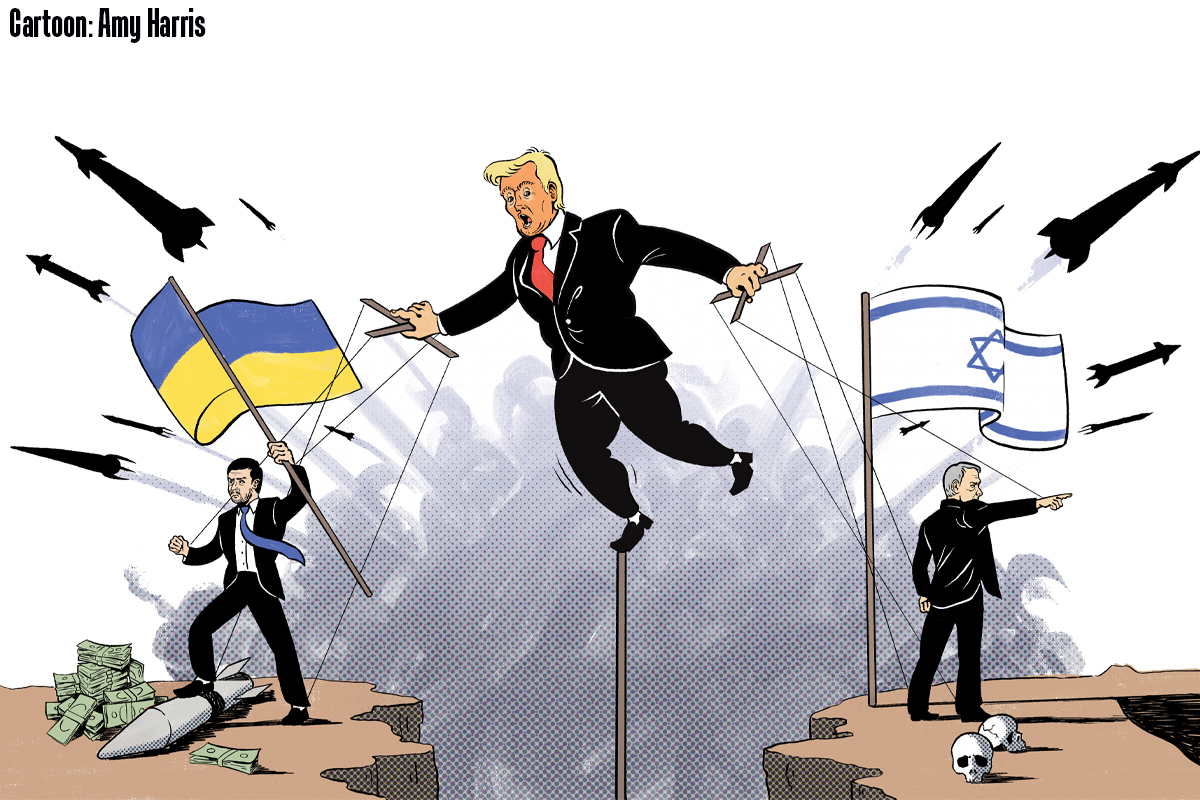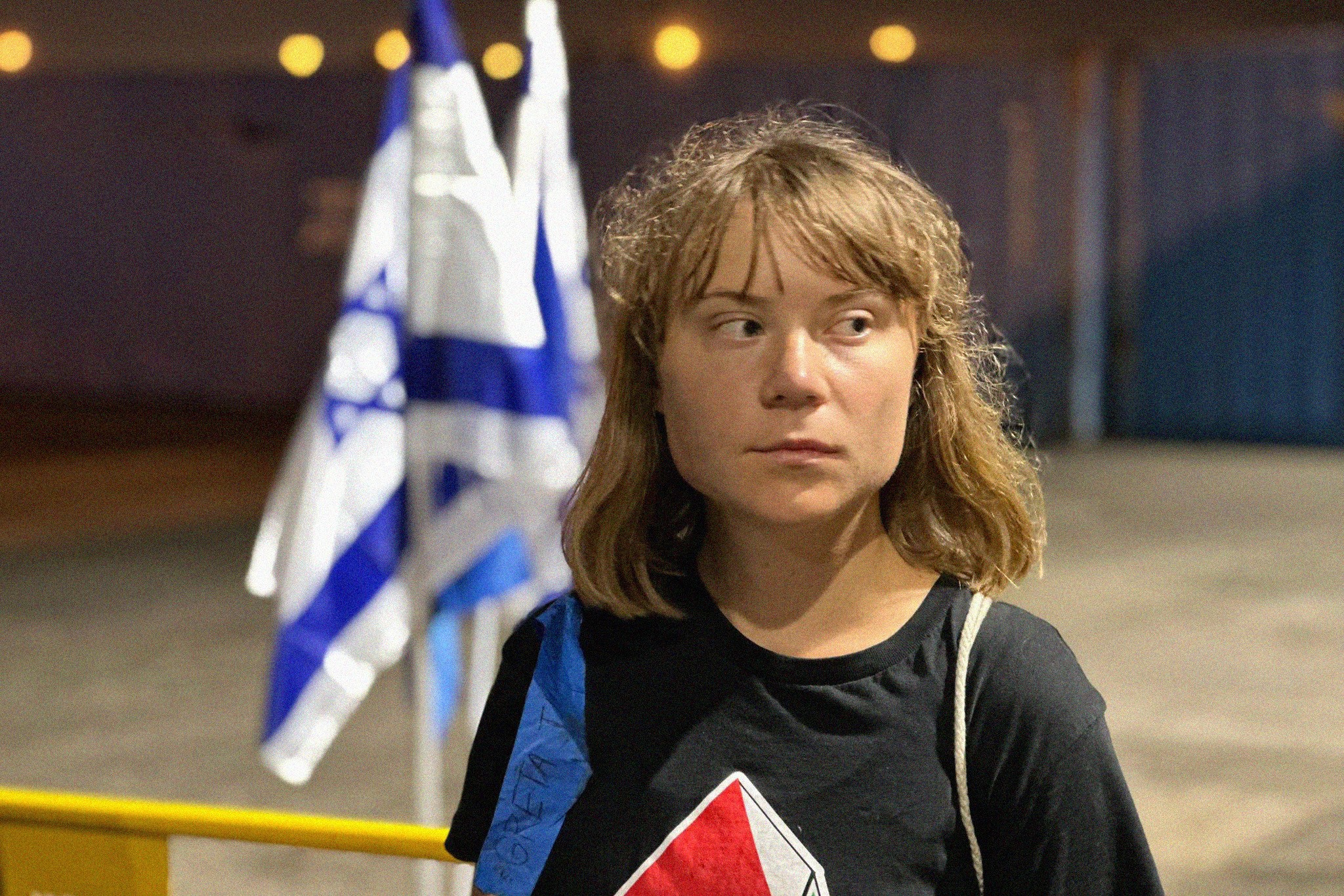In the last week, Crimea has officially become part of the Russian Federation. The western powers, despite a series of veiled threats, have been able to do nothing to stop this process. Francesco Merli examines the latest developments in Russia and Ukraine, which expose the declining influence of US imperialism and its European allies.
On 18th March, in front of the Duma in Moscow, Russian president Vladimir Putin delivered a defiant speech announcing the annexation of Crimea, after a referendum on Sunday had confirmed that the vast majority of the Crimean population favours the option of becoming part of the Russian Federation. Immediately after his speech the Crimean authorities signed a treaty which puts that decision into practice, which is now being ratified by Russia’s Parliament while we are writing.
Putin’s speech reveals that the gloves are off and it came as an open slap in the face to Obama, mercilessly exposing the limitations of the power of US imperialism and its European allies.
As was entirely predictable, the choir of western diplomats’ mutterings, veiled threats and protests aimed at stopping Russia from escalating the intervention in the Ukraine have been vain and totally ineffective. UN general secretary Ban Ki-moon’s trip to Moscow was even more farcical, considering that Russia has the power of veto in the Security Council. The interests at stake are such that Putin has no intention and cannot afford to step back, quite the contrary.
On the ground pro-Russia forces are consolidating their grip over Crimea, and seized two bases on Wednesday, including Ukraine’s navy HQ in Sevastopol. The Ukrainian government has announced they will be withdrawing the 22,000 military personnel deployed in Crimea.
Putin’s words highlight the increasing frustration of the Russian ruling class towards the constant US meddling in what they regard as their natural sphere of influence:
“We understand what is happening; we understand that these actions were aimed against Ukraine and Russia and against Eurasian integration. And all this while Russia strived to engage in dialogue with our colleagues in the West. We are constantly proposing cooperation on all key issues; we want to strengthen our level of trust and for our relations to be equal, open and fair. But we saw no reciprocal steps.“On the contrary, they have lied to us many times, made decisions behind our backs, placed us before an accomplished fact. This happened with NATO’s expansion to the East, as well as the deployment of military infrastructure at our borders. They kept telling us the same thing: ‘Well, this does not concern you.’ That’s easy to say.“It happened with the deployment of a missile defence system. In spite of all our apprehensions, the project is working and moving forward. It happened with the endless foot-dragging in the talks on visa issues, promises of fair competition and free access to global markets.”
And further on:
“In short, we have every reason to assume that the infamous policy of containment, led in the 18th, 19th and 20th centuries, continues today. They are constantly trying to sweep us into a corner because we have an independent position, because we maintain it and because we call things like they are and do not engage in hypocrisy. But there is a limit to everything. And with Ukraine, our western partners have crossed the line, playing the bear and acting irresponsibly and unprofessionally.“After all, they were fully aware that there are millions of Russians living in Ukraine and in Crimea. They must have really lacked political instinct and common sense not to foresee all the consequences of their actions. Russia found itself in a position it could not retreat from. If you compress the spring all the way to its limit, it will snap back hard. You must always remember this.“Today, it is imperative to end this hysteria, to refute the rhetoric of the cold war and to accept the obvious fact: Russia is an independent, active participant in international affairs; like other countries, it has its own national interests that need to be taken into account and respected.”
The Russian military and the rising bourgeois elite have witnessed over the last 25 years their sphere of influence collapsing and becoming a hunting ground for western powers. They were impotent in preventing the collapse of the USSR and then of the Confederation of Independent States. What is new, however, is that the Russian ruling class has consolidated its position over recent years and regained at least partially its confidence, strength, economic and military power and is able to back up its ambitions with influence and military might.
Sanctions and retaliations
Russia’s move has stirred up a spate of emergency NATO meetings, a European leaders’ emergency dinner and vocal protests from the US administration and its closest allies threatening “consequences”. But the dilemma they find themselves in is that they have no will nor intention to come to a direct military confrontation with Russia, but they need at the same time to limit the damage and boost the confidence of their shaky allies in the region who feel they will be next in the firing line, so they cannot afford to be seen as doing nothing either.
Sanctions were announced on March 19 by US president Obama and confirmed yesterday, after the EU leaders’ dinner where the big news was that they had managed eventually to agree on something, by vibrantly protesting against the “unconstitutional referendum” held in Crimea. These sanctions target a few Russian oligarchs close to Putin, but their real overall impact is laughable..
Obviously these type of measures cannot be regarded as a serious deterrent, but excluding direct military intervention, what are the options left to them? Here the scenario suddenly becomes more complicated. Important economic sanctions, such as targeting Russia’s oil and gas exports, would inevitably affect badly the economies of all European countries because Europe is energy dependent on gas supplies from Russia. In the past Putin proved the point that such measures would hurt Europe more than Russia by closing the tap of gas supplies on several occasions. Talks of a possible embargo on arms exports to Russia were vetoed by France which has billions at stake in military contracts with Moscow. Merkel instead pointed out that Crimea was a lost cause and a threat to impose economic sanctions on Russia should be used only if Putin extended the conflict beyond Crimea. Britain is worried of the impact sanctions would have on the investments in the City by Russian oligarchs.
President Obama has mentioned that deeper economic sanctions could be the next step, but anything seriously impacting on the main European economies would inevitably have global consequences, throwing the rest of the world into a deep depression. The real attitude of US diplomacy was reflected in the infamous“F**k the EU” phone call by US official Victoria Nuland leaked in February. Apart from the colourful language it showed that it has been the US imperialists and not Germany or the EU who have been calling the shots in Kiev and shaping the post-Yanukovych Ukraine, thus pushing Russia to intervene. If it wasn’t for the global consequences, the US imperialists probably wouldn’t be too upset by seeing Russia and Germany being diverted, drained and weakened by a constant source of instability in their backyard, while they sit comfortably thousands of miles away.
But even these farcical sanctions could suddenly turn a farce into a tragedy if things escalate further as it seems may be quite likely. The rest of eastern Ukraine is in a very precarious balance. A radicalisation in the nationalistic agenda of the new government in Kiev could alienate further even those who are not enthusiastically accepting Moscow’s embrace. Any incident could trigger military intervention by Russia in the rest of eastern Ukraine, with the excuse of protecting the livelihoods and interests of the Russian population there. What is clear, at least, is that the Russian army is preparing to be ready, amassing forces along the border.
Russia has already announced that counter-retaliatory measures will be taken, starting from a ban on a number of key US political leaders from entering Russia. Retaliatory measures could acquire a logic on their own once started. In fact, Putin right now is not scared of sanctions. The harder they are, the stronger his position will be within Russia.
Putin is cleverly denouncing the hypocrisy of western diplomacy and their double standards that allowed US imperialism and its European allies to dismember Yugoslavia and Czechoslovakia with total impunity, waving the flag of people’s rights to self determination. Why shouldn’t the same standards apply to Crimea? The deployment of Russian troops on the ground has been greeted with relief by a majority of the Crimean population and supported even by sections of the ethnic Ukrainian population in the region who speak Russian as a mother tongue. The referendum might have been rigged or not, but no one is really disputing the fact that the vast majority of the Crimean population favours the prospect of joining the Russian Federation, even if many of them simply regard Russia as a protective shield from further escalation of the crisis in the Ukraine.
What Russia is showing to the whole world is that when fundamental interests collide, they can only be resolved by the use of force and in that respect Russia has two big advantages over her rivals: a strong base of support among the population in Crimea and eastern Ukraine – at least for the time being – and the power to mobilise many more troops, tanks and guns on the ground – faster, and with the ability to supply them for longer periods – than any other rival in the region.
But what is the real aim of Putin and what is the national interest of Russian capitalism? Is this crisis going to escalate inevitably into open military confrontation between Russia and the new Ukrainian government in Kiev, backed by the EU and the United States? What is clear is that a long period of meddling of the western powers in the Ukraine has triggered the present crisis, but they are unable now to control it. Russian intervention has escalated further and now the crisis is acquiring a logic of its own where all participants are reacting empirically in order to preserve their strategic interests.
The only actors who have no say are the people of Ukraine – Russian, Tatars, or Ukrainians – who will suffer the consequences of this power struggle.
Putin’s speech – a manifesto of Russian imperialist ambitions
The implications of the Ukraine crisis go well beyond the Ukraine and bring to the fore forcefully Russia’s ambition to restore her historical sphere of influence.
Putin warned that all Russian-speaking minorities in former Soviet Union republics, as in Ukraine, will be regarded as part of a single Russian nation. This would represent the basis for future Russian interventions across the board, although not necessarily by military means. Should their interests be threatened Russia might take measures to ensure their protection. One of the ideas that Putin has been toying with is to extend Russian citizenship to ethnic Russians and Russian speakers throughout the former Soviet Union, thus legalising the right of Russia to use them as a justification for exerting more influence on the countries that host them.
The most explosive cases are the Russian speaking enclave of Trans-Dniester in Moldova, which has also recently asked to join Russia, and the major unsolved problem of the status of Russian speakers in the Baltic republics, which is particularly delicate because the Baltic republics are the only former Soviet republics that now are part of the EU and NATO.
The competition between the West and Russia is bound to spill over and escalate throughout the whole region. The Russian blitz on Georgia in 2008, matched by the Crimean crisis now, revealed already at the time that the USA were unable to defend even a country that was just about to join NATO.
What consequences within Russia?
Russia is the most unequal country in the world, according to the annual Global Wealth report published by Credit Suisse last October. A mere 110 Russian citizens now control 35 percent of the total household wealth across the country. This statistic alone provides a glimpse of the level of looting ordinary Russians have had to put up with since capitalist restoration. Putin is not the representative of the interests of ordinary Russian people, but of the elite, the capitalists, the military hierarchy and upper echelons of the state apparatus.
The Crimean crisis has given Putin a new lease of popular support, but the effect will not last forever. For ordinary Russians the reality of life is too hard to be ignored for too long. Over the past year an increasingly radical mood has been developing in Russia amongst the youth and criticism of corruption and inequality has become more widespread. In Putin’s speech there is a clear warning that the elite is preparing to use the current situation of confrontation with US imperialism to their advantage on the home front, if need be:
“Some Western politicians are already threatening us with not just sanctions but also the prospect of increasingly serious problems on the domestic front. I would like to know what it is they have in mind exactly: action by a fifth column, this disparate bunch of ‘national traitors’, or are they hoping to put us in a worsening social and economic situation so as to provoke public discontent? We consider such statements irresponsible and clearly aggressive in tone, and we will respond to them accordingly.”
What Putin is hinting at is that social unrest will not be tolerated. In the next period it will become clearer to anyone in Russia what this means in practice. The ruling class will resort to any means at their disposal in order to defend their privileges if the workers and youth of Russia dare demand better conditions for themselves. We are confident the workers in Russia and internationally will respond to the capitalists accordingly.






